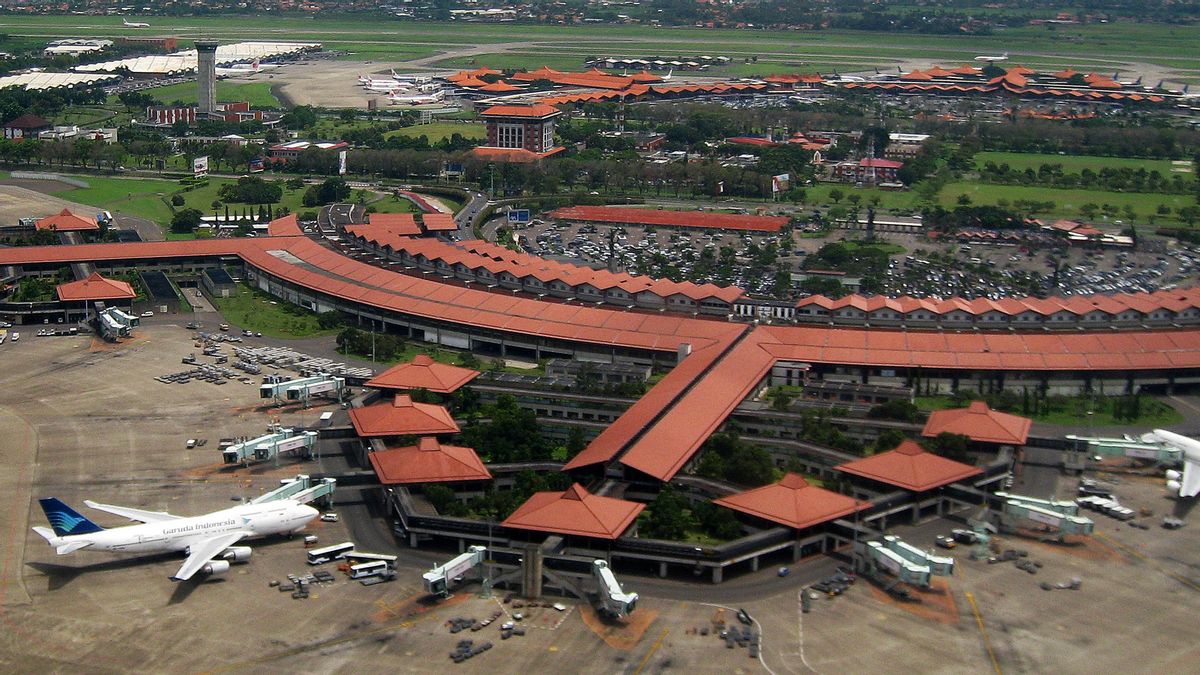JAKARTA - The appeal to "stay at home", work in a "work from home / WFH" way, until the restrictions on community mobility during 2021 have an impact on reducing the number of people traveling.
Even psychologically, the threat of COVID-19 makes people think long about traveling long distances. As a result, the mode of transportation lacks passengers, including the air mode, in which domestic and international flights become quiet.
Records from the Indonesia National Air Carriers Association (INACA) show that there has been a sharp decline in the number of airplane passengers in the last two years compared to 2019. This is due to restrictions on mobility due to the COVID-19 pandemic. The realization of domestic aircraft passengers in 2019 was around 80 million passengers.
Meanwhile, the Central Statistics Agency (BPS) recorded the total number of air passengers in Indonesia during 2019 reached 95.56 million, consisting of 76.68 million domestic flight passengers and 18.88 million international flights.
Due to the COVID-19 pandemic since March 2020 and restrictions on population mobility, the number of passengers fell to 36.05 million last year, consisting of 32.39 million domestic flight passengers and 3.66 million international flights. In 2021, the total number of air passengers is estimated to be 28 million in line with the outbreak of the Delta variant of COVID-19 around July-August.
The decrease in the number of passengers has caused the aviation industry to stagnate, and it cannot even avoid losses. Take for example the state-owned airline, Garuda Indonesia. In 2021, PT Garuda Indonesia Tbk (GIAA) incurred a net loss of 1.334 billion US dollars or equivalent to Rp. 18.94 trillion (exchange rate of Rp. 14,200 per US dollar) in the financial reporting period ending 30 September 2021. This loss swelled by 25 percent. from the same period the previous year which was recorded at 1.07 billion dollars or Rp. 15.19 trillion.
Garuda's financial performance was conveyed by the Deputy Minister of BUMN Kartika Wirjoatmodjo at the Working Meeting of the Minister of BUMN with Commission VI, Tuesday, November 9 afternoon. Based on his explanation, as of September 2021 Garuda recorded revenues of 568 million dollars or around Rp8.06 trillion. This achievement fell 50 percent from revenue for the same period the previous year which was valued at 1.13 billion dollars or equivalent to Rp. 16.05 trillion.
In terms of total revenue, GIAA's revenue in the first three months of 2021 was only $353.07 million. This revenue fell 54.03 percent when compared to total revenue in the first quarter of 2020 which amounted to 768.12 million dollars.
How about the others? Lion Air Group has also been hit by a pandemic. One of the signs is the management announcing the reduction of the workforce by laying off employees (non-dismissal status) according to the workload (load) in each unit, which is approximately 25 percent to 35 percent of employees from 23,000 employees.
2022 prospectINACA looks at the 2022 outlook from vaccination rates. Chairman of INACA Denon Prawiraatmadja said he was concerned about the current situation of airlines in Indonesia. As long as the COVID-19 pandemic has not been resolved, the airline industry and airline companies will still be under pressure.
Therefore, he hopes that vaccination can be accelerated so that herd immunity can be formed more quickly. That way, people's mobility and the use of air transportation can quickly recover.
BPS also expressed optimism that with the acceleration of vaccination and improved handling of COVID-19, in 2022 the number of air transportation passengers is projected to rise again to 56 million, especially from domestic passengers.
Regarding numbers, INACA is also as optimistic as BPS. INACA's projections include that domestic flight passengers in 2022 can start to reach 60 million passengers. This optimism is based on government policies that have begun to reduce the level of implementation of community activity restrictions (PPKM).
In fact, at the end of this year the PPKM level 3 policy, which was originally planned to be implemented by the government ahead of the 2021 Christmas and 2022 New Year periods, was canceled. This policy will open up community mobility. In the end there will be many more passengers on the plane.
However, this optimism remains to be tested. Take a look at the progress of COVID-19 cases after the Christmas and New Year holidays. Even though it was arranged in such a way, mobility during this period increased. It's easy to see from the number of cars leaving Jakarta.
The English, Chinese, Japanese, Arabic, and French versions are automatically generated by the AI. So there may still be inaccuracies in translating, please always see Indonesian as our main language. (system supported by DigitalSiber.id)













